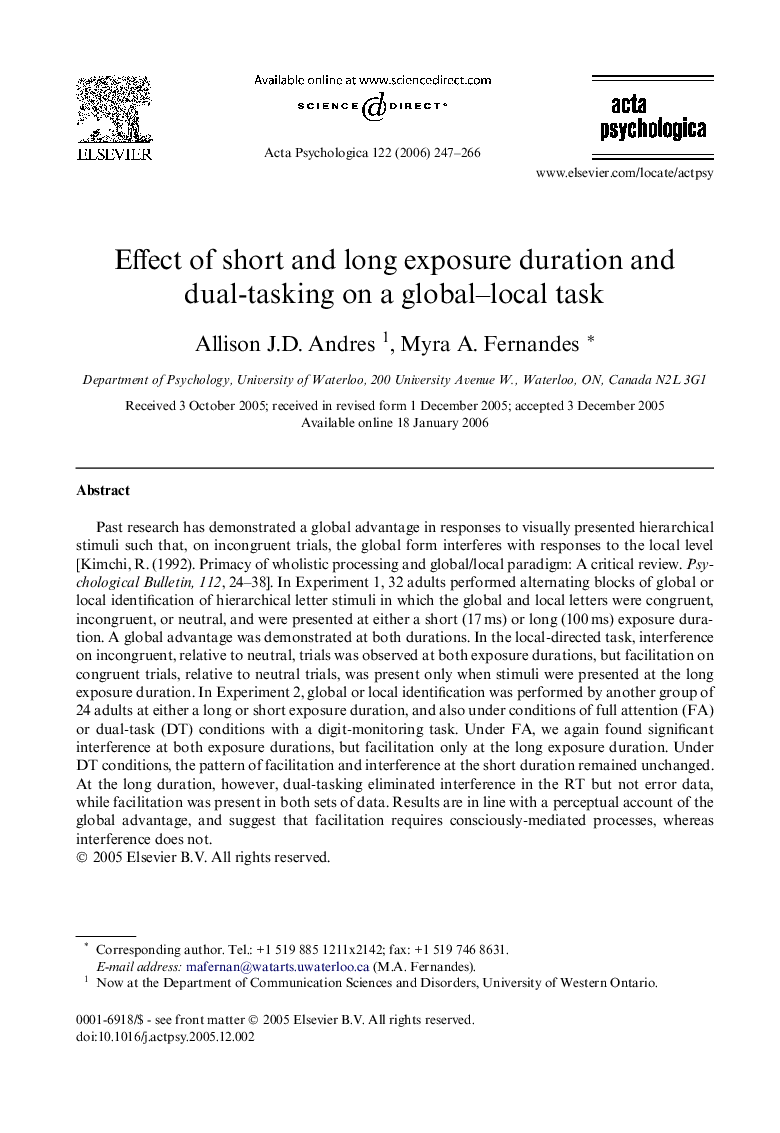| کد مقاله | کد نشریه | سال انتشار | مقاله انگلیسی | نسخه تمام متن |
|---|---|---|---|---|
| 920602 | 920302 | 2006 | 20 صفحه PDF | دانلود رایگان |

Past research has demonstrated a global advantage in responses to visually presented hierarchical stimuli such that, on incongruent trials, the global form interferes with responses to the local level [Kimchi, R. (1992). Primacy of wholistic processing and global/local paradigm: A critical review. Psychological Bulletin, 112, 24–38]. In Experiment 1, 32 adults performed alternating blocks of global or local identification of hierarchical letter stimuli in which the global and local letters were congruent, incongruent, or neutral, and were presented at either a short (17 ms) or long (100 ms) exposure duration. A global advantage was demonstrated at both durations. In the local-directed task, interference on incongruent, relative to neutral, trials was observed at both exposure durations, but facilitation on congruent trials, relative to neutral trials, was present only when stimuli were presented at the long exposure duration. In Experiment 2, global or local identification was performed by another group of 24 adults at either a long or short exposure duration, and also under conditions of full attention (FA) or dual-task (DT) conditions with a digit-monitoring task. Under FA, we again found significant interference at both exposure durations, but facilitation only at the long exposure duration. Under DT conditions, the pattern of facilitation and interference at the short duration remained unchanged. At the long duration, however, dual-tasking eliminated interference in the RT but not error data, while facilitation was present in both sets of data. Results are in line with a perceptual account of the global advantage, and suggest that facilitation requires consciously-mediated processes, whereas interference does not.
Journal: Acta Psychologica - Volume 122, Issue 3, July 2006, Pages 247–266